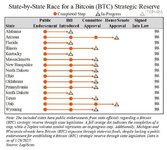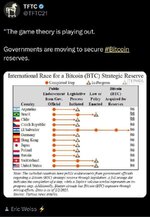A few things to note about this. Firstly Bitcoin is still legal tender in El Salvador. Court ordered debts, taxes etc still have the option to be paid in Bitcoin. They merely tweaked it to stop merchants from being forced to accept it.
For example in Australia cash is legal tender which means any court ordered debts can be paid in cash but retailers are not obliged to accept it.
For example in Australia there are now some shops, cafes etc which only accept card payments because they do not want to deal with the costs associated with handling cash (banking, security, employee time to cash up the tills etc).
Legally speaking they are not obliged to accept cash, however the government is proposing to put in place a bill to force all retailers etc to accept cash by 2030 (it causes some old people and children problems when certain places do not accept cash).
As for the rest of the article I would speculate that usage rates of Bitcoin have been low in El Salvador because people in general there are so poor that there isn't enough capital accumulation and enough of a savings culture for a store of value like Bitcoin to gain widespread adoption. After all why would people bother using Bitcoin if they are just going to consume whatever money is received straight away? The U.S. dollar is a sufficiently stable short term store of value if you are going to spend that cash in a few days or a few weeks and most El Salvadoreans do not have long-term savings so the U.S. dollar suffices.
The other issue is financial and technological illiteracy is still very high amongst El Salvadoreans. Even in the Chivo app there was a fairly modest amount of remittances sent using U.S. dollars (more than Bitcoin but still low). So a lot of El Salvadoreans are still sending U.S. dollar remittances through services like western union which charge huge fees rather than sending U.S. dollars through the Chivo app which is much faster and cheaper.
The other problem in El Salvador is the cash economy. The idea that Bitcoin would reach the unbanked was dumb. People who are unbanked are largely operating in the illegal cash economy deliberately to avoid taxes, labour laws and other regulations. They do not want to be part of any official system whether electronic fiat or Bitcoin. El Salvador is still a mostly cash economy hence why Bitcoin usage did not take off.
If the same pro bitcoin regime adopted in El Salvador was adopted in a wealthy country adoption would be an order of magnitude higher.



